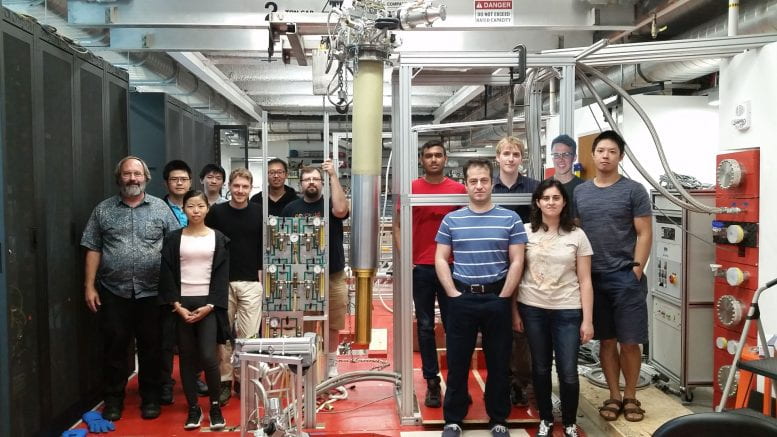The American Physical Society (APS) announced a new measurement of the electron’s magnetism – a discovery made by the Gabrielse Group in Northwestern’s Center for Fundamental Physics (CFP).
The CFP specialize in tabletop experiments that “investigate the particles, interactions, and symmetries of the universe – to test and help develop our most fundamental theoretical descriptions.” The CFP’s Gabrielse Group, led by Board of Trustees Professor in Physics Gerald Gabrielse, uses methods of quantum science to carry out high-precision tests of the Standard Model of Particle Physics and some of the most sensitive searches for physics beyond the Standard Model.
According to the announcement, the group’s new measurements “have determined the value of the electron’s magnetic moment 2.2 times more accurately than the previous best estimate, which was obtained in 2008.”
The achievement is a “triumph for fundamental physics, one that enables an unprecedently precise test of QED and confirms that the electron is an elementary particle.”
“The result paves the way for much larger accuracy improvements in the next few years,” wrote APS author Saïda Guellati-Khelifa (Sorbonne University, Paris, France), “offering tantalizing prospects for using these measurements to search for physics beyond the standard model.”
Read the APS’s full announcement (including details of the CFP’s new techniques).

